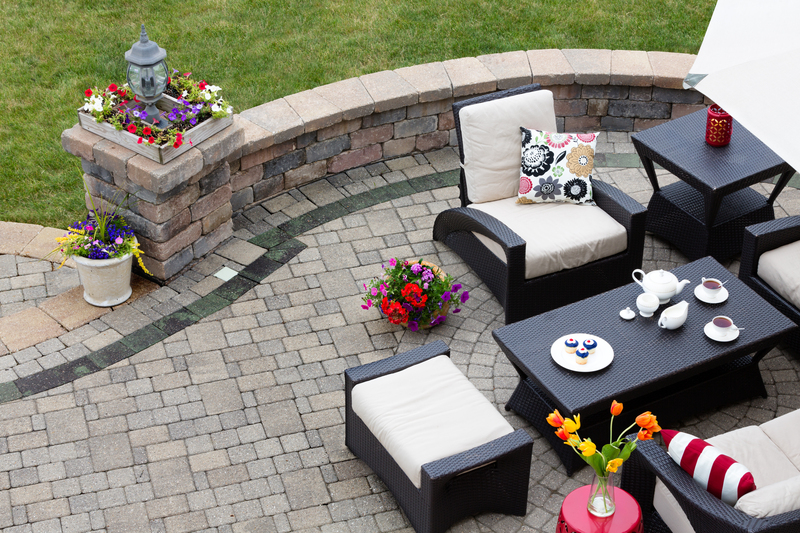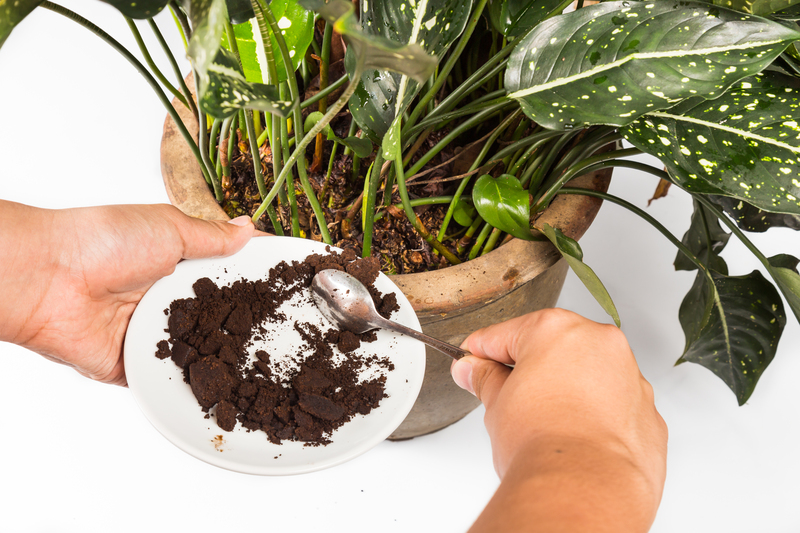Easy-Care Evergreens: 10 Top Picks for Limited Spaces
Evergreen plants are the unsung heroes of the horticultural world, providing year-round color, texture, and structure for gardens and landscapes, no matter the size. If you're working with a small yard, cozy courtyard, balcony, or even containers, it's still possible to enjoy the lush beauty of evergreens. This comprehensive guide will introduce you to the top 10 easy-care evergreens ideal for limited spaces, offering expert tips for choosing and maintaining these low-maintenance wonders. Whether you're a seasoned gardener or a beginner, these evergreen suggestions will help you create a thriving green sanctuary with minimal effort.
Why Choose Easy-Care Evergreens for Small Spaces?
- Year-round beauty: Evergreens retain their leaves or needles throughout all seasons, providing constant visual interest in your landscape.
- Low maintenance: Many varieties require minimal pruning, watering, and fertilizing.
- Privacy and shelter: Dense growth creates privacy screens, windbreaks, or tucks neatly into corners for added seclusion.
- Wildlife benefits: Evergreens offer habitat and food sources for birds and pollinators during every season.
- Versatility: Compact cultivars suit containers, patios, terraces, and limited urban spaces.
Let's explore the best easy-care evergreens perfect for small gardens, patios, or even balcony planters!

Top 10 Easy-Care Evergreens for Limited Spaces
1. Dwarf Alberta Spruce (Picea glauca 'Conica')
- Growth habit: Neat, conical shape with dense, bright green foliage.
- Mature size: 4-6 feet tall, 2-3 feet wide over many years.
- Benefits: Slow-growing and naturally compact, this spruce is an excellent choice for small gardens, foundation plantings, or container cultivation. Its tidy form requires minimal pruning to maintain its attractive silhouette.
Tip: Place in full sun for best color and shape; avoid locations with hot, reflected heat.
2. Boxwood (Buxus sempervirens or B. microphylla)
- Growth habit: Dense, small, dark green leaves perfect for hedging or topiary.
- Mature size: Dwarf cultivars like 'Green Velvet' or 'Winter Gem' stay under 3 feet high and wide.
- Benefits: Boxwoods are incredibly versatile--use as a stately border, focal point, or clipped into formal shapes. They tolerate shade and adapt well to pruning, making them great for intricate designs in small spaces.
Care tip: Water during drought and mulch to protect roots; choose blight-resistant varieties where disease is a concern.
3. Japanese Holly (Ilex crenata)
- Growth habit: Resembles boxwood with fine-textured, glossy leaves and a compact, rounded shape.
- Mature size: Options like 'Compacta' or 'Helleri' reach 2-4 feet high and wide.
- Benefits: Tolerant of clipping, shade, and urban conditions, these hollies offer an evergreen alternative to boxwood with equal elegance. Small black berries provide fall and winter interest.
Noteworthy: Japanese holly prefers acidic soil and benefits from yearly mulch.
4. Dwarf Hinoki Cypress (Chamaecyparis obtusa 'Nana Gracilis')
- Growth habit: Graceful, fan-shaped, deep green foliage; irregular, sculptural form.
- Mature size: Slow-growing; usually 2-3 feet tall and wide over 10 years.
- Benefits: Ideal for containers or rock gardens, the dwarf hinoki adds a touch of Japanese elegance and unique texture to small landscapes. Practically maintenance-free once established.
5. Compact Yew (Taxus baccata 'Repandens' & Taxus x media 'Densiformis')
- Growth habit: Soft, dark green needles on arching or rounded forms.
- Mature size: Stays under 3 feet tall, spread up to 5 feet.
- Benefits: Yews are durable, shade-tolerant, and respond well to pruning, making them perfect for formal hedges, groundcovers, or accent plants in compact spaces.
Important: All parts of yew are toxic if ingested; avoid where pets or children play unsupervised.
6. Mugo Pine (Pinus mugo 'Mops')
- Growth habit: Dense, mounded shape with short, dark green needles.
- Mature size: About 3 feet high and wide.
- Benefits: Exceptionally hardy and drought-tolerant once established, mugo pines suit rocky or poor soils and require little care besides occasional shaping.
Pro tip: For a unique statement, select grafted or variegated forms suited to pots.
7. Dwarf Euonymus (Euonymus fortunei 'Emerald Gaiety' & 'Silver Queen')
- Growth habit: Compact, bushy with variegated foliage--green edged with white or cream.
- Mature size: 1-2 feet tall, spreading 2-3 feet.
- Benefits: Vibrant leaves provide year-round color, and its ability to tolerate pruning makes this evergreen suitable for edges, small beds, or containers in full sun to partial shade.
Extra benefit: Stems may root where they touch soil, making a lovely living groundcover as well.
8. Little Gem Magnolia (Magnolia grandiflora 'Little Gem')
- Growth habit: Upright, columnar tree with glossy, dark green leaves and fragrant, creamy flowers.
- Mature size: 8-12 feet tall, 4-6 feet wide; can be pruned to maintain size.
- Benefits: A great choice for narrow spaces or large containers, Little Gem offers both evergreen foliage and seasonal blooms, making it a show-stopper for patios or entryways.
To note: Protect roots from freezing temperatures in colder zones.
9. Heavenly Bamboo (Nandina domestica 'Gulf Stream')
- Growth habit: Upright, compact shrub with airy, bamboo-like leaves that turn red or bronze in winter.
- Mature size: 2-3 feet tall and wide.
- Benefits: Extremely low maintenance, pest resistant, and drought tolerant. Nandina provides seasonal color with no need for pruning, and its berries attract birds in winter.
Caution: Berries can be toxic if ingested by pets or small children.
10. Dwarf Mountain Laurel (Kalmia latifolia 'Minuet')
- Growth habit: Rounded, compact shrub with glossy, evergreen leaves and spectacular late spring flowers.
- Mature size: Only 3 feet high and wide.
- Benefits: One of the best low-maintenance evergreens for limited garden space, mountain laurel thrives in part shade and provides gorgeous blooms as a bonus.
Tip: Amend soil with organic matter and maintain moisture for best performance.
How to Choose the Right Evergreen for Small Spaces
To maximize your enjoyment and minimize maintenance, keep the following in mind:
- Size at maturity: Choose species and cultivars that naturally stay small or dwarf, so they won't outgrow their allotted space.
- Growth rate: Slow-growing evergreens are easier to control and seldom require aggressive pruning.
- Light requirements: Match your plant to available sun exposure--some tolerate full shade, others need direct sun for best form and color.
- Climate suitability: Select cultivars hardy in your zone for worry-free, year-round interest.
- Purpose: Decide if you need an accent, screen, groundcover, or living wall before purchasing.
Design Tips for Small Gardens Using Easy-Care Evergreens
- Layer heights and textures. Combine upright and rounded forms for depth, and mix needle- and leaf-types for visual appeal.
- Use containers creatively. Almost all compact evergreens for small spaces can thrive in pots, perfect for patios or apartment balconies.
- Highlight entrances and paths. Plant small-type evergreens beside walkways, gates, or steps for instant structure and welcoming greenery.
- Employ repetition. Repeat several of the same kind in clusters or lines for a cohesive, designer look.
- Seasonal flair. Select 1-2 evergreens with winter color (like Nandina or Euonymus) to keep small spaces lively all year.
Caring for Compact Evergreens: Simple Maintenance Tips
- Watering: Newly-planted evergreens need regular water during their first season; established plants are generally drought-tolerant, especially conifers and Yucca.
- Mulching: Apply 2-3 inches of bark or compost mulch to conserve moisture and protect shallow roots.
- Fertilizing: Most easy-care evergreens require only an annual top-dressing of compost in spring.
- Pruning: Selective trimming in late winter maintains size and shape. Boxwood and holly respond well to shaping, but avoid heavy shearing of slower-growing conifers.
- Pest and disease management: Compact varieties are typically resilient; monitor for issues and prune out any affected branches as needed.

Frequently Asked Questions About Easy-Care Evergreens for Limited Spaces
Which evergreens are best for pots or planters?
Compact conifers like Dwarf Alberta Spruce, Hinoki Cypress, and boxwood thrive in large pots with good drainage. Add organic mulch and water regularly, especially in summer.
How do I keep my small evergreens healthy year-round?
Keep them mulched, water during drought, and feed lightly each spring. Avoid over-pruning, and select disease-resistant varieties where possible for truly low-maintenance evergreen plantings.
Can I grow evergreens in shade?
Yes! Japanese holly, yews, and boxwoods all tolerate partial to full shade, making them perfect for courtyards or north-facing patios.
What about evergreens for privacy in tight spots?
Narrow, upright types such as 'Little Gem' magnolia or columnar junipers are ideal for screening unsightly views without taking up too much room.
Which easy-care evergreens have the best winter color?
Try Nandina or variegated Euonymus for vivid red or gold winter foliage. Many compact pines also hold deep green needles even in the coldest months.
Conclusion: Enjoy Evergreen Beauty No Matter the Size of Your Space
With careful plant selection and simple maintenance, even the smallest urban garden, balcony, or patio can become a tranquil, year-round retreat. These top 10 easy-care evergreens for small spaces offer a combination of shape, color, and evergreen reliability without demanding constant attention. Whether you favor classic boxwoods, showy magnolias, or sculptural conifers in containers, there's no need to sacrifice big beauty in a petite plot!
Start transforming your small garden or terrace with these evergreen favorites, and enjoy lush, enduring greenery for many seasons to come.